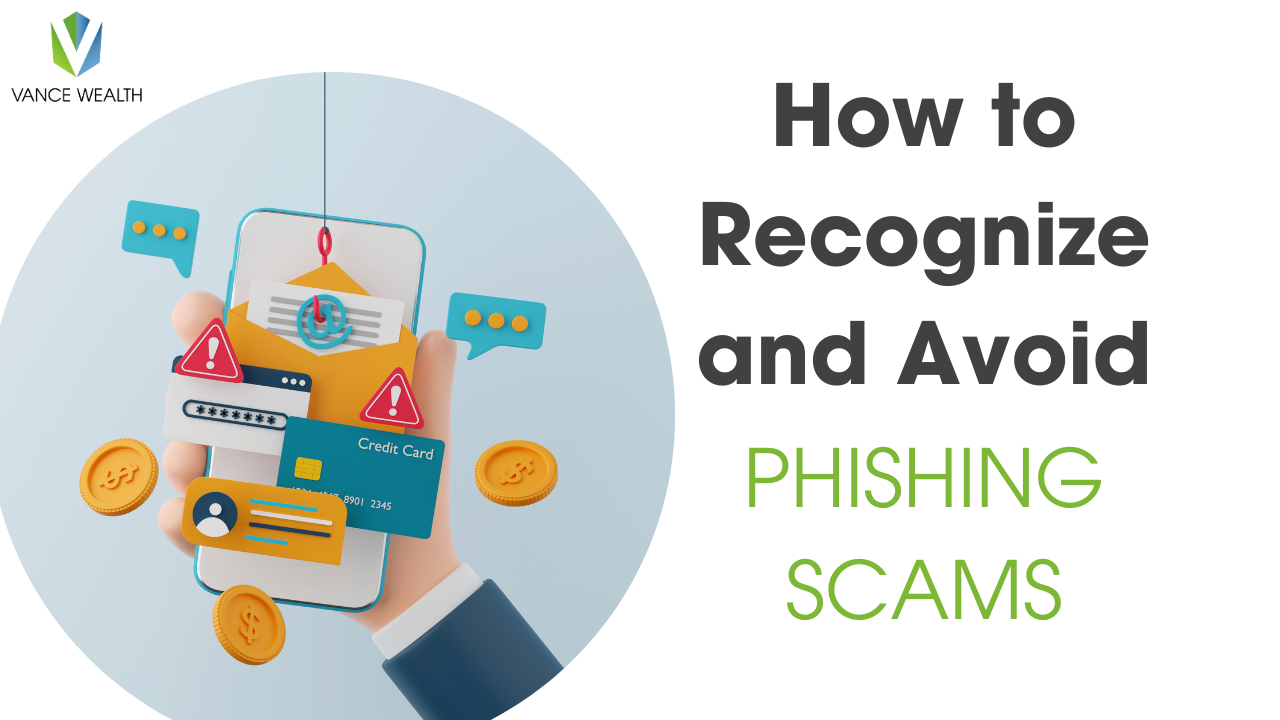HOW TO RECOGNIZE AND AVOID PHISHING SCAMS

HOW TO RECOGNIZE AND AVOID PHISHING SCAMS
We know you work hard to earn your wealth, and we work hard to make sure it builds over time – so you can accomplish your top goals in business and life. That’s why it’s so important to protect that wealth against scams such as phishing.
Phishing is the process of seeking personal information illegally through email, text, or pop-up messages in order to deceive you into disclosing your credit card numbers, bank account information, Social Security number, passwords, or other sensitive information.
Here are a few smart strategies to help you identify and avoid phishing scams.
Recognizing Scams
Scammers often change their tactics based on the latest news or trends, so it’s important to stay vigilant even when scams don’t fit the typical criteria perfectly. However, many phishing scams follow common tactics.
Typically, phishing emails and text messages tell a story to entice the victim into clicking a link or opening an attachment. It could look like an unexpected text from a company or organization you trust, such as a bank, utility company, or online payment app. Often there will be a sense of urgency to act quickly, such as a message that asks you to make an online payment or an account will be closed.
Some common messages can include:
- Your account has suspicious activity or log-in attempts.
- There’s a problem with your account or your payment information.
- Confirmation of your personal or financial information is needed.
- You need to pay an invoice you don’t recognize.
- You need to make a payment online.
- You’re eligible to register for a government refund.
- You have a coupon for free stuff.
Protecting Yourself
While email spam filters are helpful in identifying phishing emails, they don’t catch everything, and scammers have moved to text messages, as well. To help protect your information and finances, here are a few tips to avoid phishing scams:
- Don’t respond to or click on messages from someone you don’t know.
- If you receive an unexpected message from a business or organization, contact them directly to verify the message. Find the company’s information on a website you trust.
- Prior to entering account information on any website, look for the locked padlock symbol or "https" at the beginning of the website address to make sure the site is secure.
- Ensure that your virus scanning software automatically scans attachments, or scan them manually prior to opening them.
- Verify the sender's address or phone number whenever possible.
- Be suspicious of all attachments from a stranger. If you don't know or recognize the sender, do not open the attachment.
- Never send confidential information, such as account numbers or passwords, in an email or text message.
If you’re interested in learning more about what you can do to protect yourself from phishing scams, please reach out to one of our advisors. We’re happy to walk you through all of our security measures and answer any questions. Book your discovery call at Vance Wealth.
Vance Wealth, Inc. (“Vance Wealth”) is a registered investment advisor. Advisory services are only offered to clients or prospective clients where Vance Wealth and its representatives are properly licensed or exempt from licensure.



